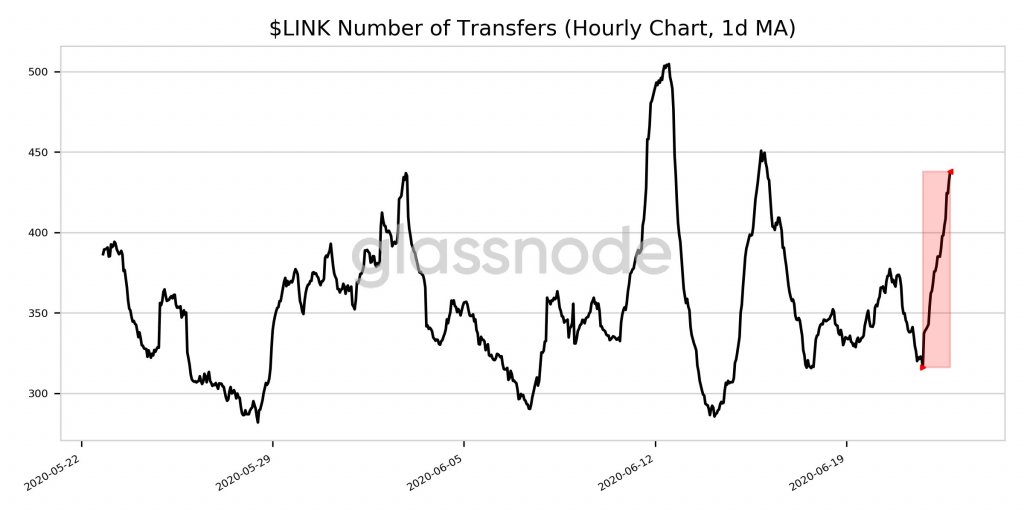2022-6-15 09:59 |
Celsius Network, one of the largest crypto lenders in the market, announced recently that it has paused withdrawals, swaps, and transfers of assets.
Citing “extreme market conditions”, the company issued a memo to its community stating that its “ultimate objective is stabilizing liquidity and restoring withdrawals, swap, and transfers between accounts as quickly as possible.”
The memo does not specify when Celsius’ 1.7 million customers will be able to withdraw their funds, but does mention that “the process will take time, and there may be delays.”
The announcement came as the latest sign of pressure in the crypto industry that is still shaken by Terra’s crash in May. The market saw hundreds of millions of dollars worth of liquidation, with Celsius’ native token— CEL—losing 50% of its value and Bitcoin and Ethereum trading at some of their lowest levels in over a year.
Celsius’ competitor NEXO has already made an offer to acquire the remaining assets.
However, somewhere between lending platforms pausing withdrawals, exchanges suspending trading, and public outrage caused by the recent collapse of the Terra ecosystem, one crucial aspect of such crises remains overlooked—the importance of self-custody.
The promise of permissionless money“Self-custody is a natural progression of the industry and inherently unique to crypto’s founding principles.“
Charles Hamel, Ledger VP of product
Not your keys, not your coins is a tale as old as time in the crypto world. It’s a common phrase but the concept behind it is so often misunderstood and neglected.
You see, when you first buy cryptocurrency, you’re issued two keys: public and private. A public key serves as an address that can be shared with other parties to receive transactions. To make things simpler, we can compare a public key with a bank account number you can share with third parties without worrying that your assets will be compromised.
On the other hand, a private key represents a randomly generated number that signs transactions and allows you to spend your funds. As a last line of defense, a private key protects your assets from malicious actors and unauthorized access. If it gets compromised or lost, you won’t be able to access your wallet to spend, withdraw, or transfer coins.
To safeguard and keep track of your keys, and therefore your assets, you can use online or offline wallets. Online wallets, also known as hot wallets, store private keys on systems or devices that are connected to the internet. Examples include mobile wallets or desktop wallets as well as custodial wallets managed by crypto exchanges.
Hot wallets are easy and convenient to use, however, they come with several drawbacks. Besides being susceptible to attacks and a honeypot for hackers, with hot wallets, the custody of private keys is often entrusted to a third party. And entrusting your keys to a third party means you never have full control over your funds.
The safer choice is specialized hardware wallets that store private keys and sign transactions offline, making them resistant to digital threats. In fact, stealing private keys from a hardware wallet would require physical access to the wallet and corresponding PIN or the recovery phrase. In addition, with hardware wallets, you don’t need to rely on third-party custodians.
“Once you trust someone with your money, it’s no longer your money, it’s theirs, and then eventually they’ll give it back to you…Bitcoin has been designed for self-custody. So if we’re doing Bitcoin just to put our money back in the bank, then there’s no point.”
Pascal Gauthier, Ledger CEO
As we have seen during the recent events, lending platforms can pause operations, crypto exchanges can freeze your transactions, and withdrawal thresholds can be set.
At the end of the day, entrusting your assets to hot wallets, exchanges, lending platforms, or other third parties isn’t really that different from entrusting them to a bank.
Yes, cryptocurrencies give you sovereignty, but at the same time, they give you the responsibility of safe storage. Permissionless money, and cryptocurrencies in general, make sense only if you employ self-custody and put your keys, and therefore your coins, in your own hands.
Ledger: your keys, your coinsEver since its inception, security has been part of Ledger’s DNA. For us, the most important thing is to cater to this need, then add all the applicative layers on top of it.
As part of our mission, we create hardware wallets to provide you with the path to financial freedom with the highest level of security for your private keys, and therefore your assets.
With more than five million customers, Ledger Nano wallets have several layers of security that protect private keys, and hence assets:
Private keys are stored on the secure element chips.A PIN code and a 24-word recovery phrase are required to access the wallet.Ledger Nano hardware wallets have been built using highly durable materials for protection against physical damage.With full isolation between private keys and your computer/smartphone, Ledger Nano wallets keep your keys secure and give you complete control over your assets.
origin »Bitcoin price in Telegram @btc_price_every_hour
Market.space (MASP) íà Currencies.ru
|
|






















